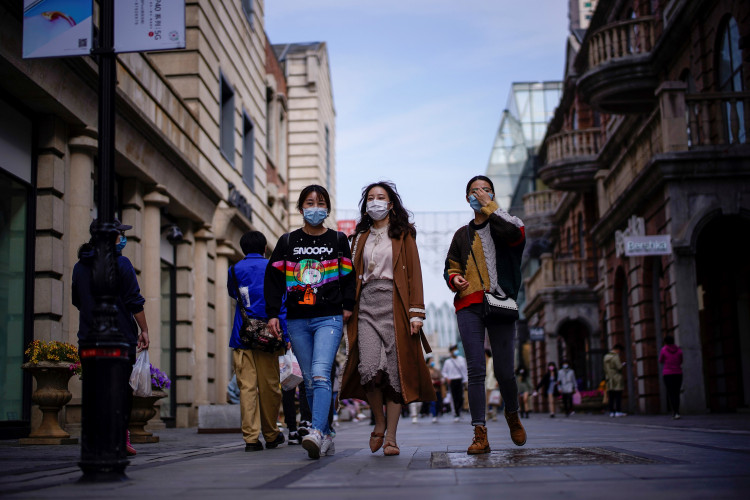The coronavirus crisis in Asia has yet to be completely contained as some countries continue find ways to improve patient and contact tracing, including China's mobile technology system that allows the government to track potential cases faster.
Beijing Relies on Big Data to Track Potential COVID-19 Cases
The novel coronavirus that originated in Wuhan, China, has yet to be completely contained despite the number of cases apparently declining to a significant level over the past several weeks.
As part of the Chinese government's efforts in tracking potential COVID-19 cases, a system that runs on big data and mobile technology was set in place, CNN reported.
The health code system uses a color-coding method: red or amber for non-entry, and green for those who will be allowed to move around for important matters. Citizens who do not have the app are prohibited from stepping out of their residential compounds.
Three months after the lockdown in Wuhan was ordered, the QR codes are still in place and people who have the apps still need to show their QR codes to authorities in checkpoint areas to ensure that they are health-wise allowed to move around the country.
As of Wednesday, China registered at least 83,356 confirmed COVID-19 cases and 3,346 deaths.
Four Days of New Cases below 30 in South Korea
South Korea on Thursday reported 22 new coronavirus cases, bringing the country's total to 10,613, as confirmed by the Korea Centers for Disease Control and Prevention (KCDC).
According to the Yonhap News Agency, the new cases marks the fourth consecutive day that the country recorded cases below 30. Still, health authorities are not letting their guards down due to the possibility of a second wave from imported cases.
Aside from overseas travelers arriving to the country, there is also a risk of new coronavirus cases following the parliamentary elections that wrapped up on Wednesday.
As of Thursday, South Korea recorded 229 deaths due to the COVID-19 strain.
US Lawmakers Present Bill to Assist North Korea
U.S. lawmakers Rep. Andy Levin and Sen. Ed Markey on Wednesday introduced a prospective bill that should help expedite the delivery of humanitarian aid to reclusive country North Korea.
The bill, named Enhancing North Korea Humanitarian Assistance Act, is expected to hasten the processes of providing financial and medical assistance to North Koreans amid the ongoing global coronavirus crisis.
The newly-introduced bill came amid increasing concerns about the true extent of COVID-19 infections in the reclusive nation. The country has yet to confirm any coronavirus cases or deaths related to the fast-spreading disease.
Sake Producers Begin Developing Alcohol-Based Sanitizers
Amid shortages of alcohol in Asia, sake producers in Japan have started producing alcohol-based sanitizers to help in the battle against the novel coronavirus, Kyodo News reported.
One of the breweries that have announced the development of sanitizers with high-alcohol content liquids was Kikisui Sake Co. President Kazuki Haruta said the company is looking at developing a spirit with 77 percent alcohol content.
As of Wednesday, Japan registered 8,100 confirmed COVID-19 cases and 146 deaths.
Australian Federal Government Calls for School Reopening
On Thursday, Australia's federal government called on the reopening of schools across the country as a means of helping citizens get back to life as usual, Reuters reported.
Despite the urging from the federal government, some state leaders have remained reluctant in reopening schools amid fears that the COVID-19 strain may spread among students.
Federal treasurer Josh Frydenberg said in a televised interview that while a lot of things will be taken away by the novel coronavirus, Australia should at least now allow the virus to take away "our kids' education."
Australia recorded at least 6,440 confirmed COVID-19 cases and 13 deaths as of Wednesday.





